ATSIHAW Ambassadors
ATSIHAW Ambassadors
HIV Australia | Vol. 13 No. 3 | December 2015
Aboriginal and Torres Strait Islander HIV Awareness Week (ATSIHAW) is an annual program of events that seeks to raise awareness about the impact of HIV among Aboriginal and Torres Strait Islander people.
ATSIHAW has recruited high profile Ambassadors to help spread the word about HIV in our communities and the roles all individuals can play in stopping HIV. This page introduces you to some of them.
ATSIHAW National Ambassador
Steven Oliver
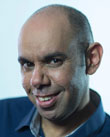 Steven is a descendant of the Kukuyalanji, Waanyi, Gangalidda, Woppaburra, Bundjalung and Biripi peoples. He studied at the Aboriginal Music Theatre Training Program in Perth, and was subsequently accepted into the Music Theatre Programme at the West Australian Academy of Performing Arts (WAAPA).
Steven is a descendant of the Kukuyalanji, Waanyi, Gangalidda, Woppaburra, Bundjalung and Biripi peoples. He studied at the Aboriginal Music Theatre Training Program in Perth, and was subsequently accepted into the Music Theatre Programme at the West Australian Academy of Performing Arts (WAAPA).
Upon his return to Queensland, he took on the role of Assistant Artistic Director with the Aboriginal Centre for the Performing Arts in Brisbane.
He has worked with companies such as Yirra Yaakin Noongar Theatre, Kooemba Jdarra Theatre, La Boite Theatre, Jute Theatre, Kite Theatre and the Queensland Arts Council.
His musical, Black Queen Black King, was shown as part of Queensland Theatre Company’s Creative Development Series and his play, Proper Solid, produced by Jute Theatre in 2014, will tour Queensland in 2016. He is also a writer, poet, actor and associate producer for ABC’s Logie nominated sketch show Black Comedy.
‘I’m doing this because I want to help fight and breakdown the stigma associated with HIV and those living with it.’
Check out Stephen’s ATSIHAW video message on Facebook
ATSIHAW Ambassadors
Ms Pat Anderson, AO
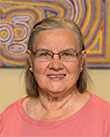 Pat is an Alyawarre woman known nationally and internationally as a powerful advocate for Aboriginal and Torres Strait Islander people. She has extensive experience in Aboriginal health and advocacy and currently serves as the Chairperson of the Lowitja Institute. In 2014, Ms Anderson was appointed Officer of the Order of Australia for distinguished service to Australia’s First Peoples. ‘In the mid-1990s, I was part of the campaign to establish the national Aboriginal and Torres Strait Islander HIV/ AIDS strategy. A lot has changed in the past 10 years, so get tested if you are worried because there are great treatments available. Let’s keep on talking about HIV, stay safe and look after each other.’
Pat is an Alyawarre woman known nationally and internationally as a powerful advocate for Aboriginal and Torres Strait Islander people. She has extensive experience in Aboriginal health and advocacy and currently serves as the Chairperson of the Lowitja Institute. In 2014, Ms Anderson was appointed Officer of the Order of Australia for distinguished service to Australia’s First Peoples. ‘In the mid-1990s, I was part of the campaign to establish the national Aboriginal and Torres Strait Islander HIV/ AIDS strategy. A lot has changed in the past 10 years, so get tested if you are worried because there are great treatments available. Let’s keep on talking about HIV, stay safe and look after each other.’
Amanda Sibasado
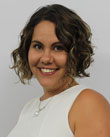 Amanda is a 28 year old Bard and Wardandi woman. She is passionate about holistic sexual health for our mob. She believes everyone has the right to safe, consensual, pleasurable sexual experiences. She is currently the Sexual Health Coordinator at Kimberley Aboriginal Medical Services. ‘HIV is a preventable disease. Let’s keep our communities safe – use condoms and get tested for HIV regularly.’
Amanda is a 28 year old Bard and Wardandi woman. She is passionate about holistic sexual health for our mob. She believes everyone has the right to safe, consensual, pleasurable sexual experiences. She is currently the Sexual Health Coordinator at Kimberley Aboriginal Medical Services. ‘HIV is a preventable disease. Let’s keep our communities safe – use condoms and get tested for HIV regularly.’
Marlene Kong
Program Head – Aboriginal and Torres Strait Islander Health Program, Kirby Institute, University of NSW
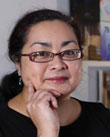 ‘As a Worimi woman, I am passionate about improving the health of Australian Aboriginal and Torres Strait Islander people.
‘As a Worimi woman, I am passionate about improving the health of Australian Aboriginal and Torres Strait Islander people.
It cannot be done without our people involved in every aspect of health care, from the ground up to the Prime Minister of Australia, acting in good faith. Australia has a long way to go in bridging the big cultural gap that continues to exist in our practices today; HIV awareness and rates among our people being one of the growing and persistent health disparities.
I call upon the leaders of our nation – especially those working in HIV medicine – to lead by example in addressing this important gap.’
Mario Assan
Senior Public Health Officer – Indigenous Sexual Health, Thursday Island Primary Health Care Centre
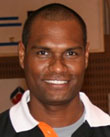 ‘My name is Mario Assan, I am a Torres Strait Islander with family connections to Badu Island. HIV prevention is important, particularly in Indigenous communities, to ensure the future of our communities is healthy and prosperous.
‘My name is Mario Assan, I am a Torres Strait Islander with family connections to Badu Island. HIV prevention is important, particularly in Indigenous communities, to ensure the future of our communities is healthy and prosperous.
People living with HIV should be supported, loved and accepted by our communities so that they feel that they are still part of our community.
Discrimination should not be tolerated by anyone; we are all one people, regardless of race, religion or sexuality.
It is important for the conversation about HIV and sexual health to be regularly highlighted on an everyday basis.
HIV awareness should be discussed every day – not only on World AIDS Day.
Highlighting good news stories in our communities is an important way to promote the fact that people can live healthy lives if they access treatment quickly and live normal lives with adequate support and medication.’
Bobby Maher
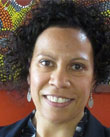 Bobby is a Yamatji woman with ancestral ties to the Pilbara and Kimberley, born and raised on Njaki Njaki country in the South West of Western Australia (WA).
Bobby is a Yamatji woman with ancestral ties to the Pilbara and Kimberley, born and raised on Njaki Njaki country in the South West of Western Australia (WA).
Bobby is passionate about promoting positive health messages in sexual health and respectful relationships through a human rights lens.
Bobby is currently working for Sexual and Reproductive Health WA as an Educator/ Project Officer with the Pilbara Project.
‘It is important for our mob and all communities to have positive and clear messaging about HIV. If HIV gets into our communities it might be a real disaster for families.
Understanding about preventing and managing HIV is really important. HIV is not a death sentence now. With good care, people with HIV can live a full and healthy life.
Barriers such as discrimination and stigma can attack people’s self-esteem and prevents them from accessing health services. We need all our communities and services to understand this and to be the best that they can.’
Dion Tatow
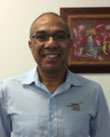 Dion is Aboriginal (Iman and Wadja) and South Sea Islander (Ambrym Island, Vanuatu). Dion is currently the Senior Policy Officer – Mental Health with the Queensland Aboriginal and Islander Health Council (QAIHC).
Dion is Aboriginal (Iman and Wadja) and South Sea Islander (Ambrym Island, Vanuatu). Dion is currently the Senior Policy Officer – Mental Health with the Queensland Aboriginal and Islander Health Council (QAIHC).
Dion has a Bachelor of Business degree and a Graduate Certificate in Health Service Management. Dion has worked in Aboriginal and Torres Strait Islander health for 20 years – for both the Commonwealth (OATSIH) and state governments (Queensland Health) – and for the past nine years at QAIHC.
His roles have focused on program development, implementation and policy development and evaluation, with a particular focus on social and emotional well being/mental health and sexual health/blood borne viruses in Aboriginal and Torres Strait Islander communities.
Dion has been involved with Aboriginal and Torres Strait Islander community-based organisations since the early 1980s as an elected committee member.
‘Increasing rates of HIV infection amongst our population are concerning. We all need to increase our knowledge of HIV, protect ourselves against HIV infection and support those members of our communities living with HIV.’
Arone Meeks
 Arone Meeks is a Kuku Midigi man, currently residing in Cairns. He grew up near El Arish, in far north Queensland, although his country is the area around Laura, Cape York.
Arone Meeks is a Kuku Midigi man, currently residing in Cairns. He grew up near El Arish, in far north Queensland, although his country is the area around Laura, Cape York.
He completed a Bachelor of Visual Arts at the City Art Institute in Sydney in 1984 and has forged an impressive national and international career since. A former member of the Boomalli urban Aboriginal artist’s co-operative, he won an Australia Council fellowship to study in Paris in 1989 and went on to exhibit throughout Europe and North and South America.
His work appears in many national and international collections, both public and private. In Australia, he is represented in many public collections, including the National Gallery of Australia and the Queensland Art Gallery.
His pieces are also represented internationally in collections in Canada, the United States, France and Japan.
‘HIV is everybody’s business. Let’s not make it part of our story – have an STI test.’
Professor Kerry Arabena
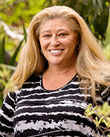 Prof Arabena is a Torres Strait Islander woman and current Chair for Indigenous Health and Head of the Indigenous Health Equity Unit at the University of Melbourne.
Prof Arabena is a Torres Strait Islander woman and current Chair for Indigenous Health and Head of the Indigenous Health Equity Unit at the University of Melbourne.
‘We all need to do our bit to prevent HIV from escalating in our communities.
I know we have been talking about it for a long time, but now more than ever we need to look after ourselves and each other. We can do this by getting tested.’

